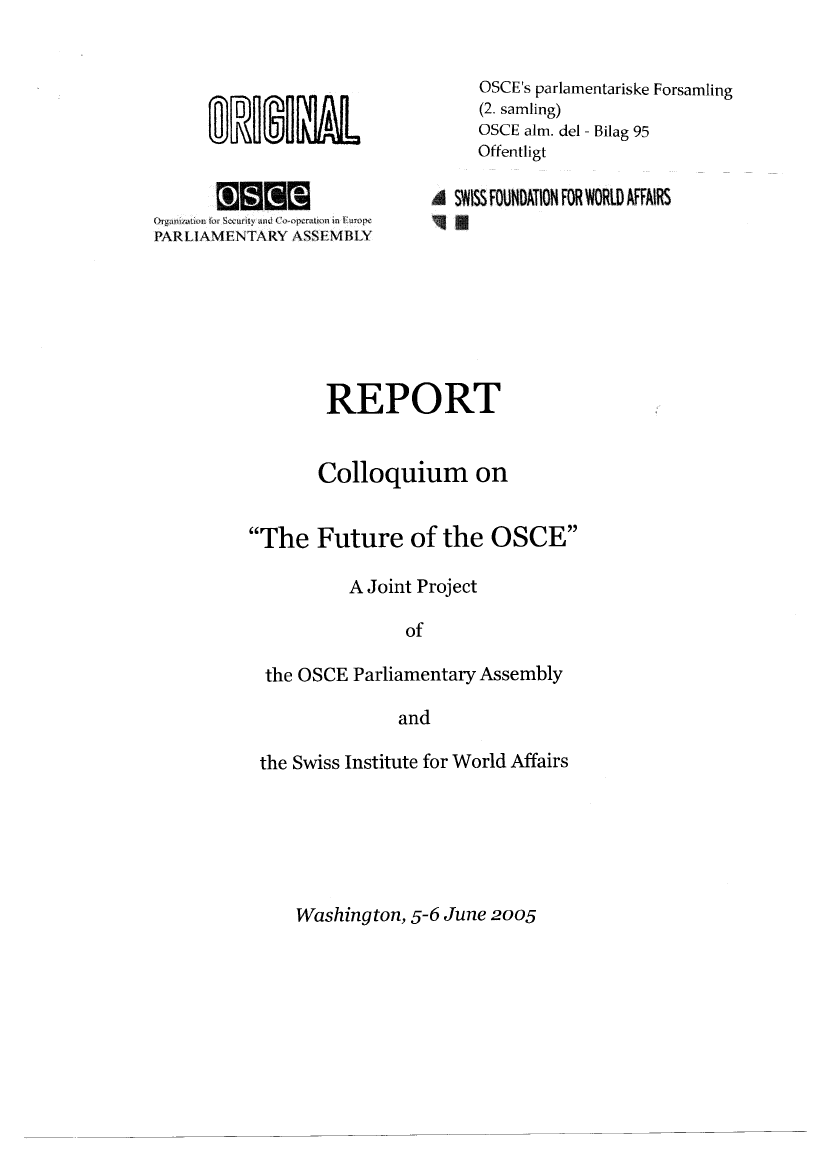
dieL
OSCE's parlamentariske Forsamling
(2. samling)
OSCE alm. del - Bilag 95
Offentligt
Organi:
Sevttrit.. anti C,-, , i,,ration in Europc
11B
FOR
Ai
SWISSFOUNDATION WORLDAFFAIRS
PARI I \MENTARY ASSEMBLY
REPORT
Colloquium on
"The Future of the OSCE"
A Joint Project
of
the OSCE Parliamentary Assembly
and
the Swiss Institute for World Affairs
Washington, 5-6 June 2005